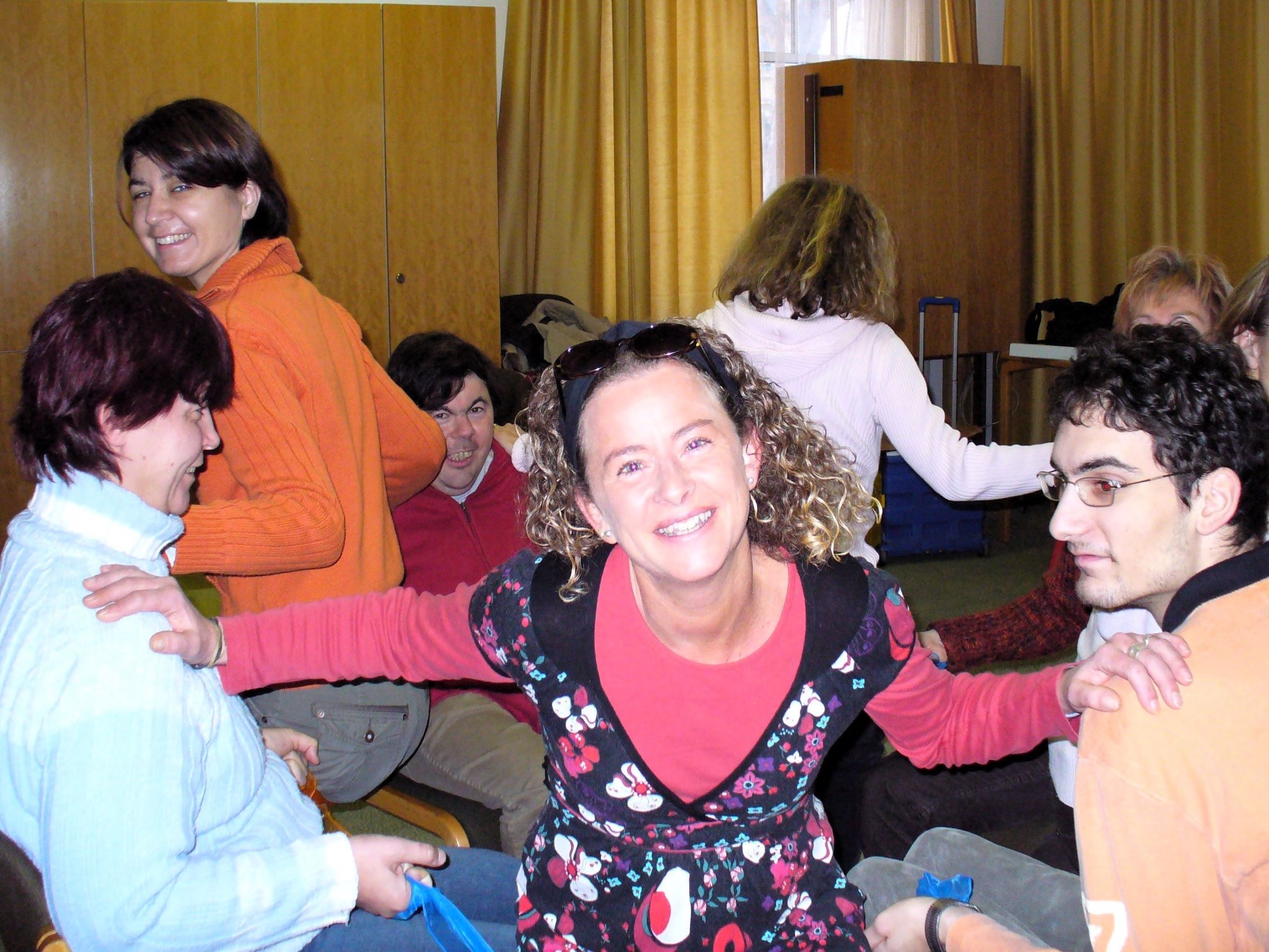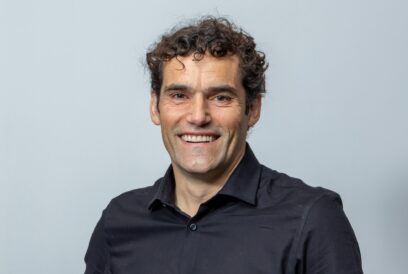In Modena, Italy, migrant women build their future through food. With the help of the Association for the Integration of Women, they learn skills required for restaurant work and integrate more easily into local society – while staying proud of their origins.
A place to put down roots and flourish: through its name, Roots, a social enterprise restaurant in the heart of Modena, Italy, reveals its mission. Under the Association for the Integration of Women (AIW), it helps migrant women become sought-after professionals, thanks to culinary training programmes in which recipes quintessential to the women’s cultural identities define the menu.
The idea came from Caroline Caporossi, born in Texas but with Italian ancestry. In 1902, her great-grandmother left a small Calabrian village to move to New York.
“My family, like thousands of others, arrived in America empty-handed except for memories, skills and culture. And there, Italians made themselves known through food,” says Caporossi.

“We place a lot of emphasis on the development of self-esteem and on the sense of integration and belonging in the local community,” says Caroline Caporossi, co-founder of AIW. Photo: CineFood.
Caporossi moved to Modena because of her Italian husband and found a job at Food for Soul, a non-profit organisation led by Michelin-star chef Massimo Bottura. She was put in charge of opening ‘refettori‘, social kitchens recovering food surplus and transforming it into high-quality dishes for those who cannot afford healthy food – or any food at all.
“In the autumn of 2019 I met Ella, a young Nigerian,” Caporossi continues. “She told me about her dream of becoming the first woman in her family to work. However, after three years in Italy, she had still not realised her goal.”
Caporossi started to research the employment situation of migrant women in Italy and the EU and found out that migrant women between the ages 25-35 in Italy face the biggest difficulties in finding jobs. Therefore, it is difficult for them to become financially autonomous.
Caporossi turned to Jessica Rosval, an award-winning Canadian chef, and asked her to co-develop a programme to help migrant women who are passionate about food to get restaurant jobs.
Learning skills and self-esteem
In 2020, Caporossi and Rosval founded AIW, a non-profit organisation. Since 2022, it has run a paid culinary training programme for 12 migrant women each year, based at the Roots restaurant. The women are selected based on the following criteria: they must have a passion for food, a work permit and some proficiency in Italian.
Each training encompasses technical culinary training and hands-on experience working in a Modenese restaurant. At the end of the programme, if the trainee has been at work for at least 45 days, their achievement of professional objectives is assessed through a standard examination called the Servizio Regionale di Formalizzazione e Certificazione delle competenze (SRFC), provided by various institutions. The process concludes with the issue of a regional certificate, the “Skills and Knowledge Form”.

The women for the training are selected based on the following criteria: they must have a passion for food, a work permit and some proficiency in Italian. Photo: Gloria Soverini.
The training programme lasts four months, a total of 350 working hours. Before the end of the training, the Roots team asks local restaurants what kind of open positions they have to help the trainees to find a job. The team is also increasingly being contacted by restaurants in search of cooks.
The programme’s basics include gaining professional skills, a reference letter from a recognised cook, a network of support and working experience in a real restaurant. It provides the trainees basically all they need to find a job, and more.
“Thanks to the volunteers, our programme also includes lessons on workers’ rights, how to read a pay slip and how to prepare for an interview, giving them the confidence to take their first steps towards employment,” Rosval states.
“Beyond that, we place a lot of emphasis on the development of self-esteem as well as a sense of integration and belonging in the local community,” Caporossi adds.
These women are often motivated to work to earn money to provide their children with better chances in life. But besides increasing the wealth of the family, the personal development of the women is also strong. After the training, some women have also the confidence to work as cooks in local restaurants, to get driving licenses and dream of opening their own restaurants. Others stay as mentors to others, like Zouhaira, a graduate who in her free time volunteers teaches other Arabic-speaking women to drive.
Pride for culinary roots
Despite a growing sense of independence, these women face triple discrimination: for being migrants, for being women and for having dark skin or being from a minority that is visibly different from the average Italian.
To foster their courage and pride in their own cultural identities, at the beginning of the training, the trainees are asked to introduce themselves through a dish that epitomises their origin and story.
Rosval, AIW’s Culinary Director, then works with them to transform their dishes into a cohesive menu that includes four starters, two main courses (meat or fish) and desserts. After that, menus are served to customers by a front-of-house team who tell the stories of the dishes and how the trainees made them.

Jessica Rosval and Caroline Caporossi want to focus their help on migrant women between the ages 25-35, who have the biggest difficulties in finding a job and becoming economically independent. Photo: CineFood.
Sharing the delicacies they have prepared themselves is also a way to build connections within the group and foster a sense of cultural relevance in a non-native context.
“We give them space to tell their stories and present their culture. It makes them proud,” Caporossi remarks.
In 2023, to further support the women, Rosval and Caporossi created a leadership council called the Ambassador Programme. Mercy from Cameroon is one of the ambassadors. Within two weeks of the end of her training, she received four job offers as a cook and now, in addition to her job, dedicates her free time to mentor trainees.
Other graduates have fulfilled their dream as cooks, such as Ikawati from Indonesia and Blessing from Nigeria, both hired by the award-winning restaurant Osteria Francescana.
Fully booked from the first day
Modena is known for its love for traditional culinary specialties. The extent to which the city has welcomed Roots’ cuisine is a display of open-mindedness and enthusiasm that’s been well beyond expectations.
“The most unexpected outcome for us is that from the first day, the restaurant has been fully booked,” Rosval says.
“We’ve had a lot of interest from both customers and other restaurateurs in trying this food. As people are enjoying and pleasantly surprised by the new flavours, they come back more and more.”
Food is a powerful means to help people appreciate other people’s traditions and to accept diversity. AIW is committed to showing that, if migrant women are given a chance to thrive in this way, the whole society is enriched.
“We collaborate with many women who ran businesses in their home countries and aspire to do the same in Modena. This is an essential way to promote a new narrative about migration: to demonstrate that migrant women can become outstanding employees in existing businesses, but also skilled entrepreneurs who create jobs for Italians in their new host community,” Caporossi explains.
And like a tree’s roots that find fertile soil and nourish a plant until it bears fruit, so the opportunities granted to one woman help other women, helping an entire community flourish.
Results of the training program
In 2023, altogether 53 AIW trainees were offered jobs. They came from 16 countries, with an average age of 33. The trainees have been hired for the positions such as ‘Aiuto Cuoca’ (assistant cook) and team leader of a restaurant staff.
According to a survey conducted by AIW in April 2024, out of all graduates, 80% were employed as of May 2024 and another 15% have been employed since the programme but were between jobs.
AIW’s work recognised
Caroline Caporossi’s and Jessica Rosval’s work has been recognised by the online publication The World’s 50 Best Restaurants, which named them “Champions of Change” in 2024. The award recognises heroes of the hospitality sector who are driving positive action in their communities and promoting more inclusive societies.
In January 2021, Caporossi was awarded the “Youth Innovation and Leadership Award” by the United Nations’ Major Group for Children and Youth, which focuses also on migration issues affecting young people.













